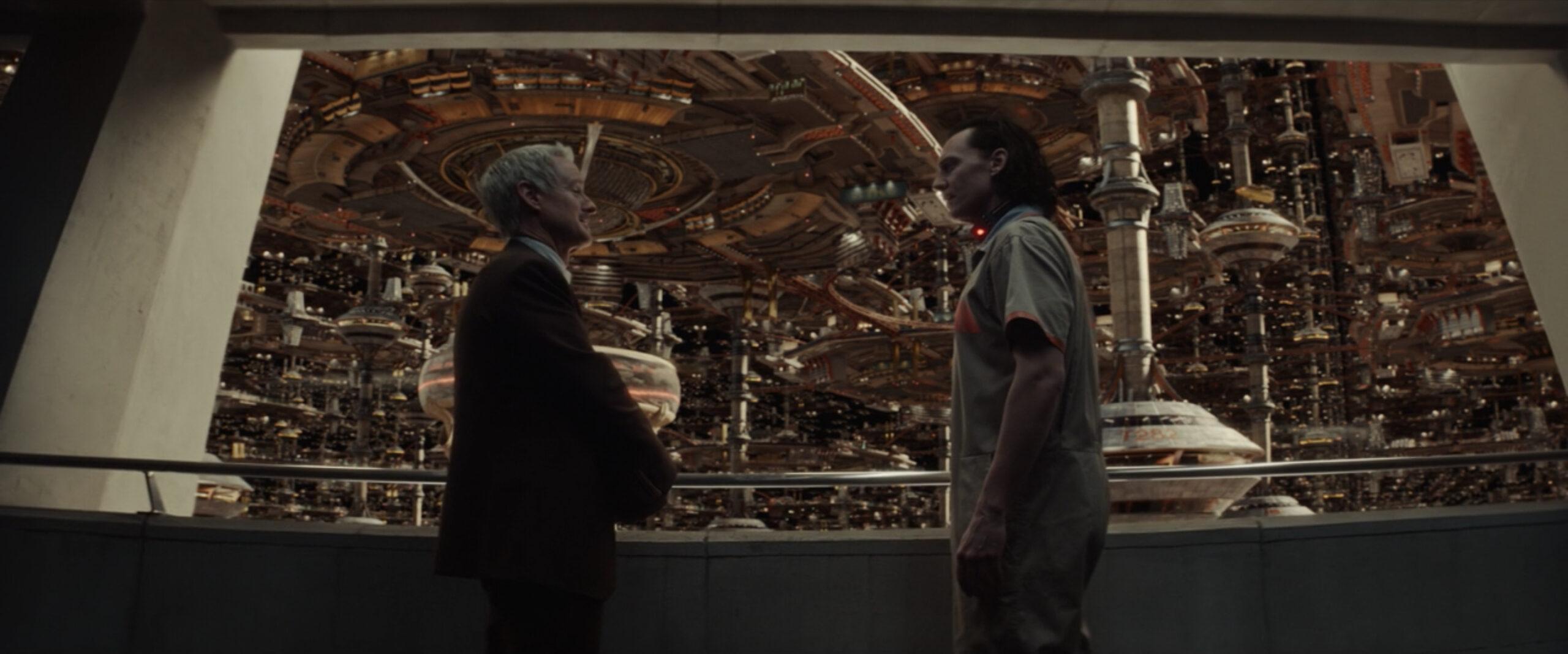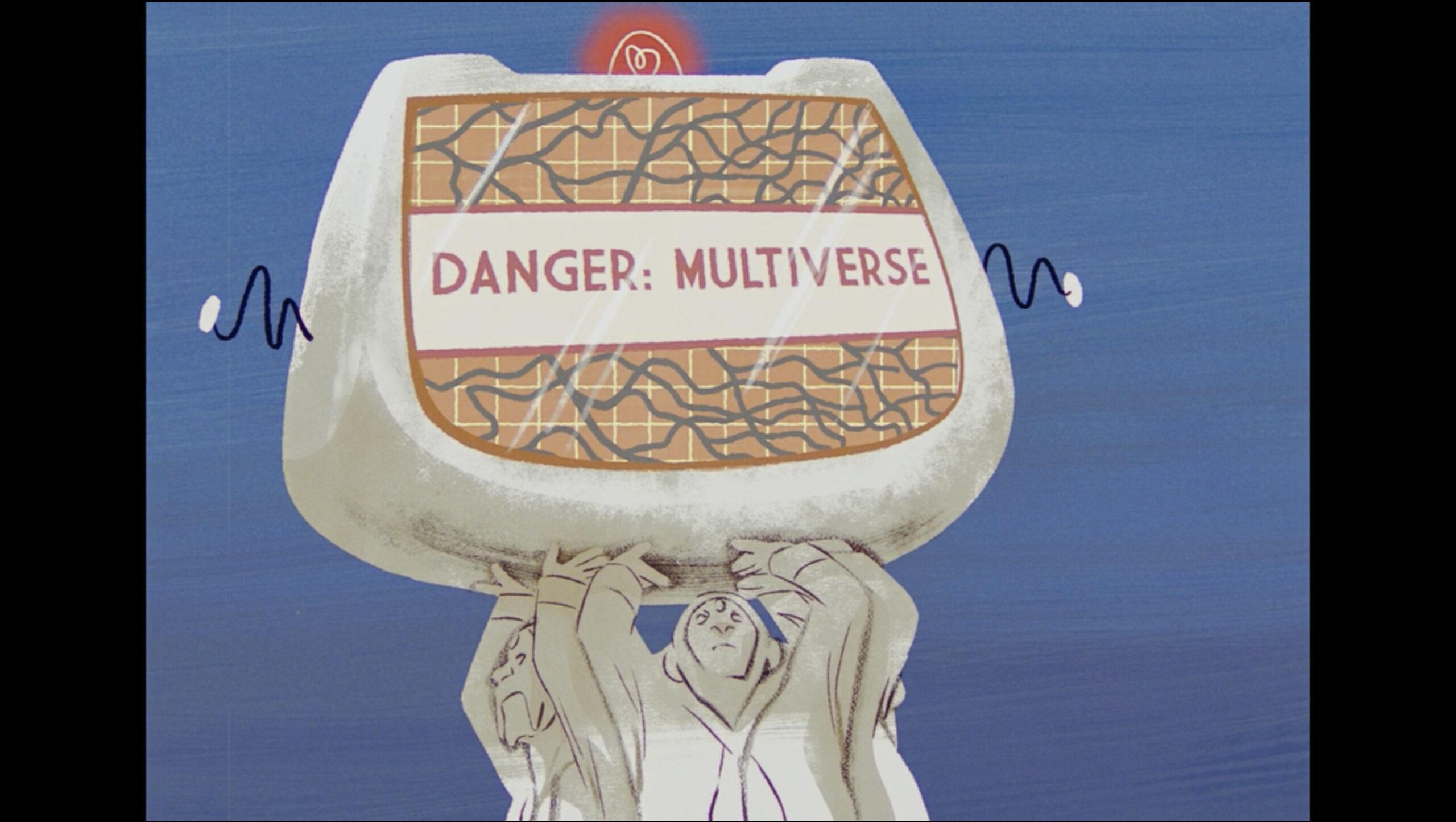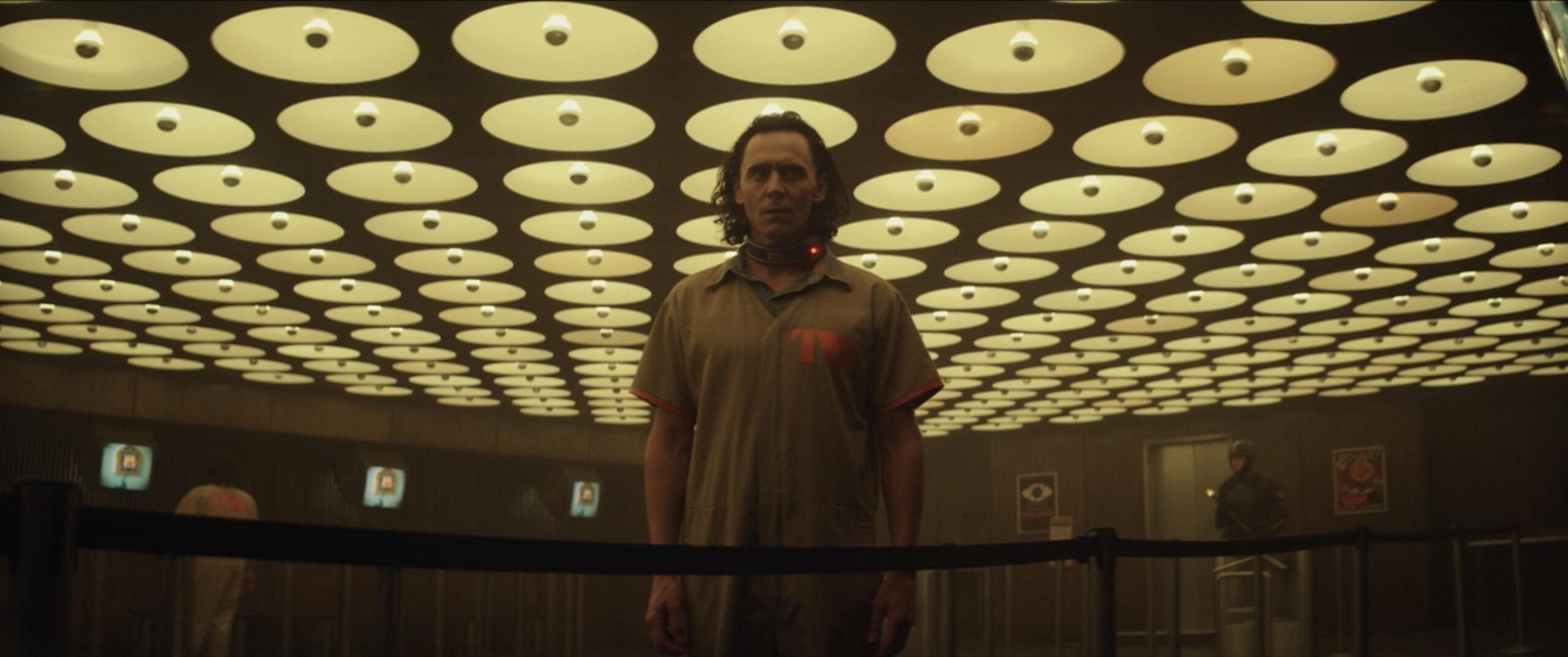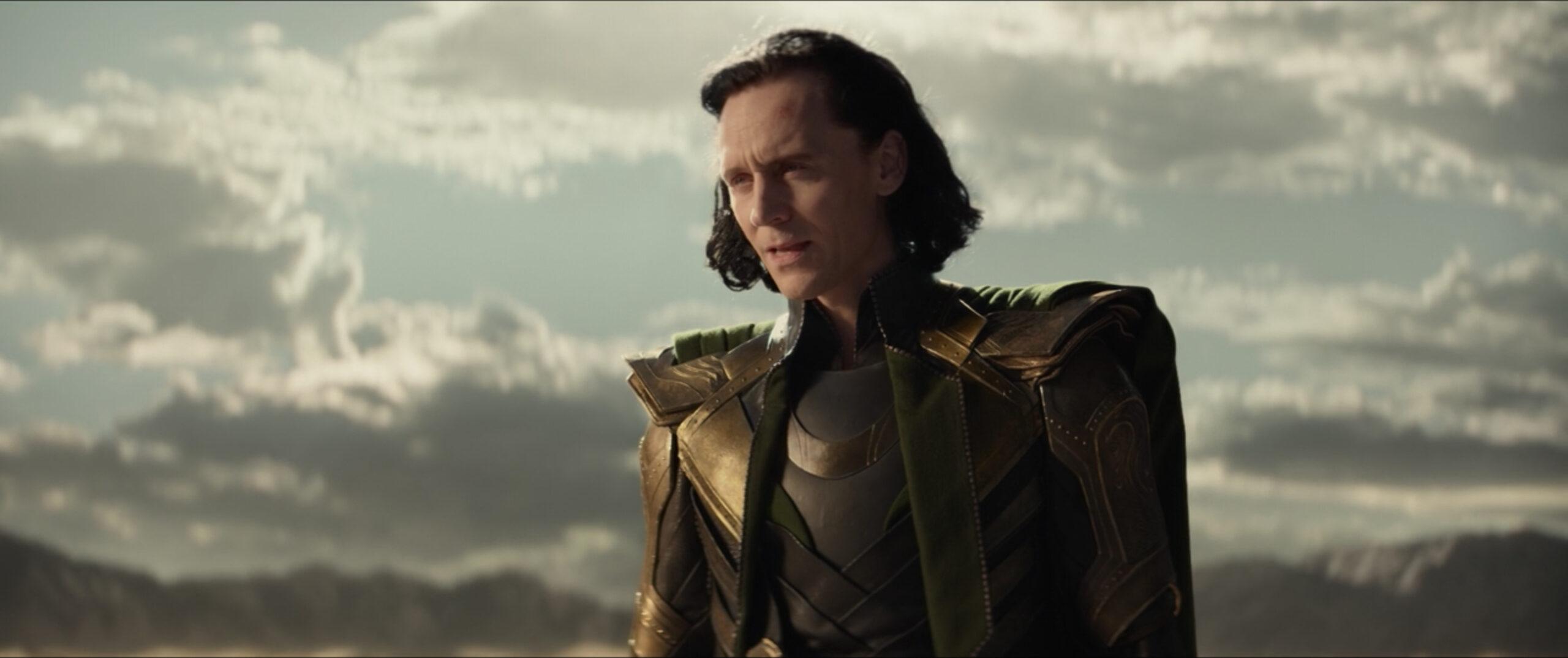
Near the end of the Loki series premiere, the show’s titular God of Mischief is plotting his escape from the Time Variance Authority as he searches for the Tesseract, the powerful tool he used to bring an alien invasion to Earth and evade eventual imprisonment on Asgard (inadvertently breaking off into a new timeline in the process). Surely it could help him escape his new captors at the TVA, too.
After threatening a poor TVA desk worker named Casey to reveal its whereabouts, Loki finds the Tesseract sitting idly in a desk drawer, beside an assortment of loose Infinity Stones and other trinkets. “Infinity Stones?” Loki asks Casey, shocked. “How ... how do you have these?”
“Oh, we actually got a lot of those,” Casey responds casually. “Yeah, some of the guys use them as paper weights.”
After refusing to believe everything he’d been told about the TVA and its duty to protect something called the “Sacred Timeline,” Loki finally understands that he’s in perhaps the most powerful place in the entire multiverse. After Marvel spent a decade building up those shiny MacGuffins as paramount, Loki renders them useless in a single scene. The rewriting of our understanding of the MCU has begun.
Following the mixed success of two shows that cast former sidekicks and supporting characters into the spotlight in WandaVision and The Falcon and the Winter Soldier, Loki features a former villain and antihero as the main attraction. Following in those series’ footsteps, the six-episode series, directed by Kate Herron, brings Tom Hiddleston’s beloved Prince of Asgard back to life to take a look at his, and the MCU’s, past. But the show also looks ahead to a bigger, stranger future. The stakes are higher than ever—the planetary conquests of Thanos suddenly seem trivial when branching timelines and the entire multiverse are in jeopardy.
In “Glorious Purpose,” Loki faces the hard truth that he is not “burdened with glorious purpose” after all, but rather that he has no real purpose at all. His whole life has been one predetermined story line controlled by ancient beings known as Time Keepers—a trio of dudes who look like space lizards—and his tale ends with a quick death at the hands of a superior villain in Thanos. And yet, the premiere concludes with Loki gaining a new purpose, setting the stage for the rest of the series: Now he must hunt another version of himself from another timeline.
Every Wednesday, we’ll break down each episode of Loki, followed by an additional piece on Friday in which I’ll focus on a major character, theme, or other topic. For the premiere, we’ll start by taking a closer look at the mysterious new organization known as the TVA, the return of Loki, and where this series is potentially headed.
What Is the TVA?

The first episode of Loki is largely an introduction to the TVA, as well as a reintroduction to the God of Mischief, as Loki Laufeyson grudgingly goes through the bureaucratic process that is the Time Variance Authority. If you’re what they call a “variant” (basically anybody who wanders off the course of their predetermined timeline), visiting the TVA is like a cross between taking a dreaded trip to the DMV and an even more dreaded trip to court to stand trial. Except at the TVA, if you don’t follow the procedures correctly—and really even if you do, it seems—you’ll probably get yourself vaporized.
While Loki waits to be processed after being caught for using the Tesseract to escape his timeline, an informative animated video provides a full rundown of what the TVA does and why people like Loki are brought there. “Long ago, there was a vast, multiversal war. Countless unique timelines battled each other for supremacy, nearly resulting in the total destruction of, well, everything!” an animated, anthropomorphic clock named Miss Minutes says cheerfully. “But then, the all-knowing Time Keepers emerged, bringing peace by reorganizing the multiverse into a single timeline: the Sacred Timeline. Now, the Time Keepers protect and preserve the proper flow of time for everyone and everything.”
Miss Minutes goes on to explain how variants like Loki create something called “Nexus Events” (which we’ll circle back to in a bit) when they don’t follow the Time Keepers’ rigid paths, potentially threatening the rising of another multiversal war. TVA’s task force of Minutemen, like Wunmi Mosaku’s Hunter B-15, bring in variants to answer for their crimes before judges by using “reset charges” and other nifty devices that allow them to manipulate time and restart the timelines that have been altered. Meanwhile, TVA agents like Mobius (Owen Wilson), who is the only one to see the potential value in Loki, specialize in tracking down dangerous variants like the version of Loki who’s been going around killing Minutemen.
There’s still a lot left to be learned about the nature of the TVA, as well as the omniscient Time Keepers that dictate the proper flow of time, but this much is clear: The TVA is more powerful than anything else we’ve seen in the MCU yet. (I would really love to see Thanos’s reaction to the magical gems he spent a lifetime killing and searching for being used to hold down paper.)
What Is the Nexus?

In the comics, the Nexus is essentially a cross-dimensional gateway that provides access to all possible realities. And as Miss Minutes explains, variants cause all sorts of problems for the TVA when they veer off of their predetermined paths. “Maybe you started an uprising, or were just late for work,” Miss Minutes explains. “Whatever it was, stepping off your path created a Nexus Event, which, left unchecked, could branch off into madness, leading to another multiversal war.”
With Loki potentially leading into Doctor Strange in the Multiverse of Madness, which Loki head writer Michael Waldron also penned the script for, the word choice of “madness” feels particularly purposeful. This could all hint at the direction that the highly anticipated Doctor Strange sequel will take if the events of Loki end up bleeding into it, with the God of Mischief messing around and potentially setting off the “total destruction” of everything. (Plus, since the upcoming Spider-Man movie is also rumored to be steeped in the multiverse, it stands to reason that Loki and Mobius won’t be successful in restoring the Sacred Timeline.) With this being only the series premiere, it’s important not get too far ahead of ourselves, but that multiversal war could very well come even sooner if Loki and the TVA are unable to stop this other deadly variant of Loki.
This episode isn’t the first time that the term Nexus has appeared in the MCU, though, as it was previously introduced as an Easter egg in one of the WandaVision in-show commercials. The ad was for an antidepressant called Nexus, a drug that could “anchor you back to reality—or the reality of your choice.” This was a significant inclusion in the show because, in the comics, the Scarlet Witch is considered to be a “Nexus Being,” a rare individual capable of altering the Universal Time Stream, and one who serves as a keystone to the multiverse. As explained in a Marvel Fandom wiki page, “Nexus Beings are vigilantly watched over by cosmic forces such as the Time Variance Authority and the Time Keepers to be aware of any temporal changes that the nexi may cause to the Time Stream and act accordingly.”
As always, everything in the MCU is extremely connected. Marvel president Kevin Feige recently spoke to Empire about the significance that the series will have for other films and TV shows moving forward. “It’s tremendously important,” Feige said. “[Loki] perhaps will have more impact on the MCU than any of the shows thus far.”
With Loki and the TVA already traveling to other timelines and dimensions with ease, and the very nature of time itself being brought into question, Loki appears to be laying down a lot of universe-building groundwork as the MCU continues to move forward from its Infinity Saga. By exploring concepts like the Nexus and the Sacred Timeline, Loki could be setting up important story elements for the Scarlet Witch and for the Sorcerer Supreme, Earth’s primary protector against magical and mystical threats. But for the moment in this series, Nexus Events are everything that the TVA wants to avoid, and probably exactly the kind of madness that the variant Loki is hoping to create.
Who Is Loki’s Variant?

After high-tailing it out of New York in 2012 with the Tesseract thanks to some mistakes made by the time-traveling Avengers during the events of Endgame, Loki was very briefly a free god. But not only did he skirt an Asgardian prison—by getting immediately arrested by the TVA, he also managed to preemptively escape the nasty death he would’ve received at the hands of Thanos. That said, it’s important to remember that the Loki variant who serves as the protagonist of this series is not the same one we knew in Thor: Ragnarok and every other film that followed 2012’s The Avengers.
The first indication that this Loki is not the same character who helped save the Asgardian people from total extinction in Ragnarok is that as soon as he lands in the Gobi Desert at the beginning of the premiere, his instinct is to try to subjugate the random humans who find him, a familiar sight from his dastardly acts in Avengers. This is still the vain guy who desperately wants to enslave the human race and be a king; who has a sense of entitlement of godly proportions, as well as a wild case of daddy issues. But after seeing the uselessness of the Infinity Stones, Loki finally understands that any attempt to escape the TVA is pointless—greater powers exist in the multiverse than even an Asgardian god like himself could have ever imagined, and his life as he knows it is over.
Loki willingly returns to the interrogation room he’d just escaped to watch the rest of his cinematic life, witnessing his mother’s death from Thor: The Dark World, his father Odin disintegrating into, uh, space dust (?) in Ragnarok, some touching moments of brotherly love with Thor, and, finally, his death in Infinity War. The experience effectively packs in all the character growth that Loki had gone through in the films after Avengers, while also providing Loki with a sense of clarity about who he truly is and what his actions did to others.
Now, Loki has a new job at the TVA thanks to Mobius’s Silence of the Lambs–style approach to bring him in for his expertise on the subject—after all, who knows and loves Loki more than himself? He may never be able to return to his own timeline, and none of his magic can bail him out at the TVA, but this Loki variant has a second chance.
Who Is Loki?

While Loki may be laying the foundation for future films to build on, the show is also interested in asking some profound questions about its namesake. Early returns of the new Disney+ series suggest that its ultimate goal is to explore what makes Loki “tick,” as Mobius puts it. Similar to both WandaVision’s character study of Wanda Maximoff as she faced a lifetime of loss and grief, and The Falcon and the Winter Soldier’s chronicling of Sam Wilson’s decision to take the mantle of Captain America, Loki seeks to explore who the God of Mischief is within a vast multiverse of variations of himself.
In the comics, Loki has taken dozens of forms and played just as many roles, whether it be as Kid Loki, Lady Loki, or a super old version of Loki—from playing as the Sorcerer Supreme to the King of the Frost Giants, to running for president of the United States. As Loki is now tasked with helping Agent Mobius and the TVA hunt down his own variant, there’s no doubt that we’ll meet several of the many shades of Loki from the comics. But ultimately, Loki—along with the show itself—is on a journey to find out what makes Loki quintessentially Loki.
One of the most important moments of the premiere comes when Loki eventually answers Mobius’s question about whether or not he takes pleasure in hurting others, one of his only moments of honesty in the episode. “I don’t enjoy hurting people,” a resigned Loki says. “I don’t enjoy it. I do it because I have to, because I’ve had to. … It’s part of the illusion; it’s the cruel, elaborate trick conjured by the weak to inspire fear.”
As Loki continues to better understand himself across alternate timelines and universes, Loki is also bringing the MCU to new sci-fi heights that will impact the long future that Feige and Co. have undoubtedly already mapped out at the House of Mouse. And in Loki—back again, on a mission to hunt himself down in a boundless chase of self-discovery (literally) through the multiverse—there’s perhaps no better guide to lead us through all the strange chaos.
